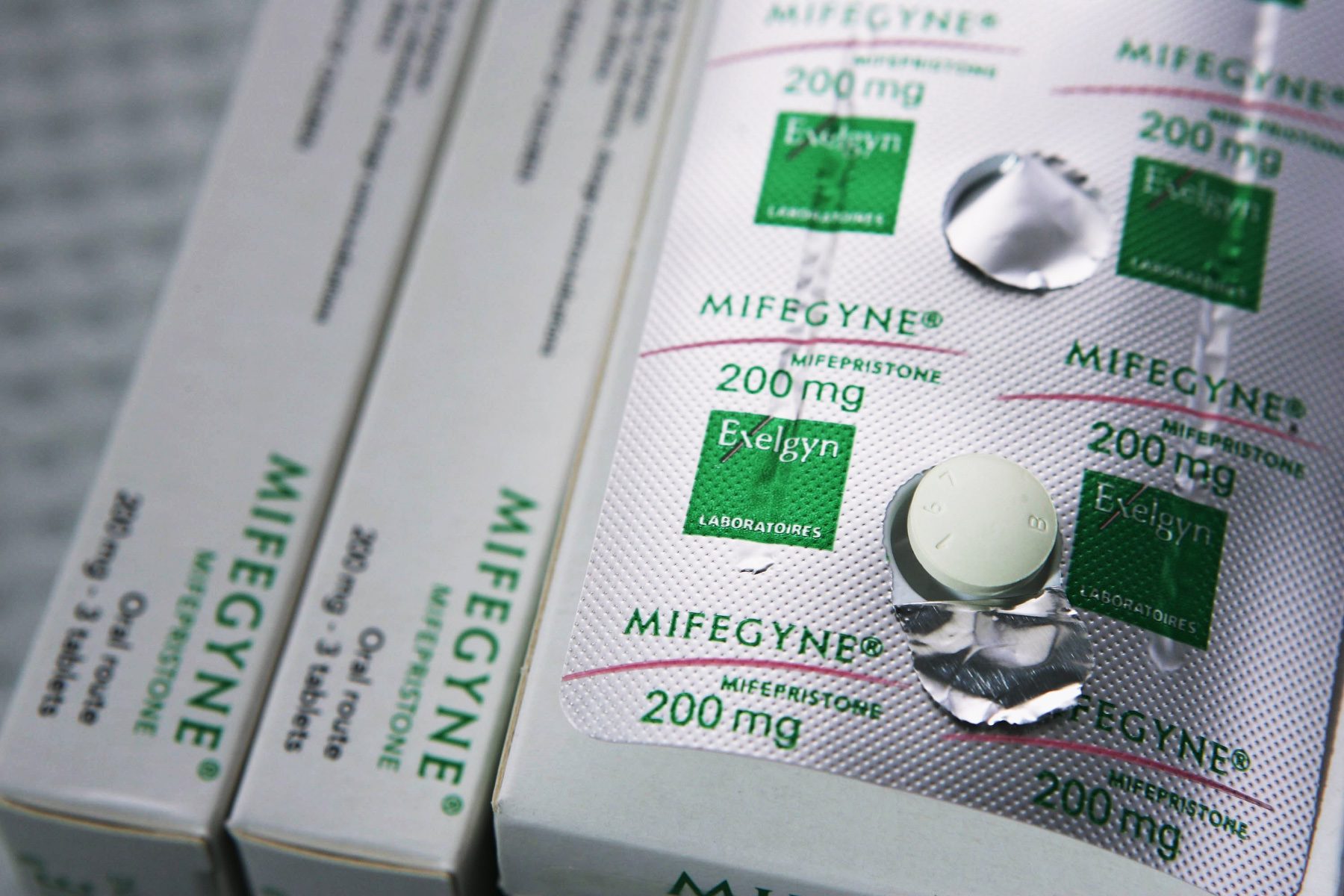Update: On September 17, Texas Gov. Greg Abbott signed this bill into law.
As the state of Texas reeled from a new law banning nearly all abortion, a separate bill that would restrict the use of medication abortion in the state is poised to become law.
Lawmakers in the Texas House of Representatives on Tuesday voted 82-41 on the bill, which would shorten the window for a pregnant person to have a medication abortion. Currently, a person who is up to 10 weeks pregnant can have a medication abortion in Texas; the bill would ban the use of abortion-inducing medication for anyone who is more than seven weeks pregnant. The Texas Senate first passed the bill, known as SB 4, last month during a special session. Tuesday’s vote in the House followed a lengthy debate on Monday. Both chambers are controlled by Republicans.
The legislation now heads to the desk of Republican Gov. Greg Abbott, who has been vocal about his opposition to abortion. On Wednesday he tweeted in part: “Texas will always defend the right to life.”
Kristen Gonzales, executive director of the Democratic-led Texas Women’s Health Caucus, noted the timing of the bill and the Texas law.
“It’s two templates. It’s two separate avenues and vehicles to get to the Supreme Court and overturn Roe,” she told The 19th, referencing the 1973 Supreme Court decision that guarantees the right to an abortion.
Most people do not know they are pregnant at seven weeks of pregnancy, a similar point highlighted by medical providers who opposed the six-week abortion ban that went into effect in Texas after midnight on Wednesday.
“Six weeks, seven weeks … both of them are set to stop access to abortion before most know that they’re pregnant,” said Jennifer Driver, senior director of reproductive rights for the State Innovation Exchange (SiX), which works with state lawmakers to pass what they describe as progressive public policy.
The medication abortion bill out of Texas also states that someone who “intentionally, knowingly, or recklessly” violates the law commits a “state jail felony” offense. The charge carries a potential jail sentence of between 180 days and up to two years and a person could be subject to fines of up to $10,000. It could also lead to disciplinary action for medical providers.
Rep. Ann Johnson, a Democrat, called the bill “devastating” for reproductive rights in the state.
“The legislature, the body, has inserted themselves into every OB-GYN’s practice,” Johnson told The 19th. “They are not only interfering with medical science and patient responsibility and patient care, but with threat of prosecution to OB-GYNs.”
Medication abortion — which typically involves taking two pills, mifepristone and misoprostol — is widely used. About 60 percent of people who get abortions by 10 weeks choose medication abortions, according to the Guttmacher Institute.
“Medication abortion is safe, legal, and one of the most accessible during a deadly pandemic,” said Royce Brooks, executive director of Annie’s List, in a statement. “Governor Abbott is throwing red meat to his base and using women’s bodies as a political casualty.”
The U.S. Food and Drug Administration first approved medication abortion in 2000. In 2016, the agency released additional guidelines that medication abortions are safe for use up to the first 70 days of pregnancy. During the pandemic, medical practitioners sought to remove a federal requirement that patients be dispensed mifepristone in person. The Biden administration agreed, but the Supreme Court issued a ruling that effectively reinstated the in-person requirement.
Rep. Stephanie Klick, a Republican in the Texas House and key sponsor of the medication abortion bill, defended the measure during floor debate Monday and Tuesday, according to the San Antonio Express-News, in part by claiming that there were increased complications with abortion-inducing medication after seven weeks of pregnancy. (The FDA’s own review shows adverse effects are rare.)
“By directly adding these protocols into state statute rather than simply linking to federal protocols, we add certainty to what the state will enforce,” Klick said, according to the paper.
Texas already requires in-person medical visits for abortion access, including for an ultrasound as part of a 24-hour waiting period for an abortion.
The Texas Catholic Conference of Bishops, which represents 16 dioceses and 20 bishops, supported the legislation in part by making a similar claim.
The bill was finalized hours before the law known as SB 8 went into effect. It bans abortion after six weeks of pregnancy and empowers private citizens to sue anyone they believe may have “aided or abetted” someone getting an abortion after six weeks. A plaintiff could receive at least $10,000 and be reimbursed for legal fees in a successful lawsuit.
Driver worries that Texas abortion restrictions will embolden conservative lawmakers elsewhere.
“I think that we would be fooling ourselves to think that it’s only going to be bills that are similar to SB 8,” she told The 19th. “Anti-abortion state legislators are going to be creative in the way that they seek to ban abortion in states, and that is both through medication abortion and it could be through clinic-based surgical abortions. They’re kind of releasing this playbook to other state legislators on how to ban abortions in their states.”
Driver said there is often more attention on federal activity regarding abortion access when statehouses have long been the key space for implementing abortion restrictions. According to the Guttmacher Institute, which tracks reproductive health policy, there have been more than 560 abortion restrictions introduced in 47 states between January and early June of this year. That include 165 measures that are considered abortion bans. More than 80 abortion restrictions have been enacted, including 10 bans.
Johnson said Texans need to respond to the restrictions at the ballot box.
“They need to get loud and need to vote like women’s health care reproductive rights have been taken away, because they have,” she said. “People should be outraged at what this body has now done, and it’s been a slow drip over this decade.”
Disclosure: Planned Parenthood has been a financial supporter of The 19th.







